10 things you need to know: National Maternity Hospital scandal
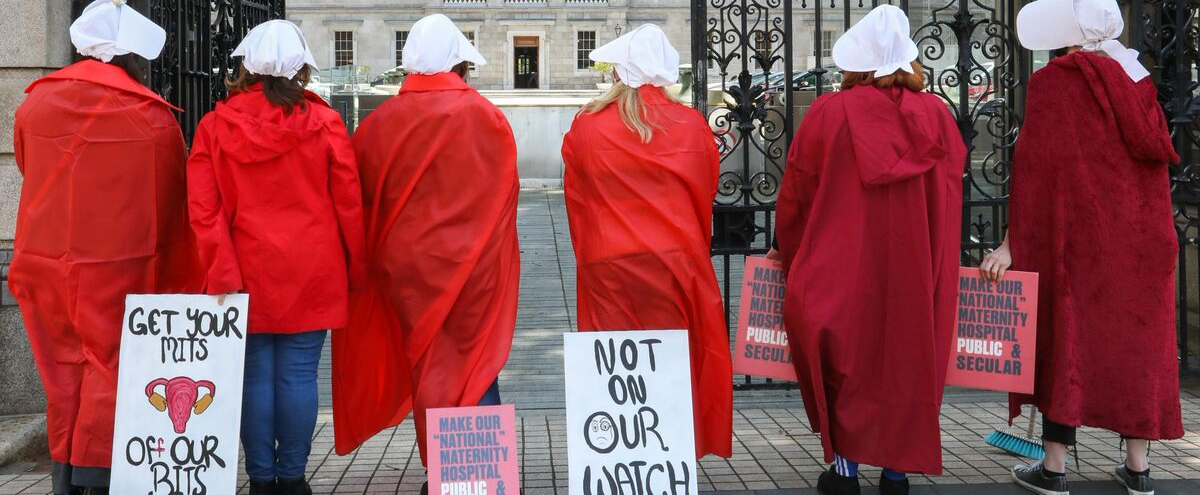 Image by Our National Maternity Hospital campaign
Image by Our National Maternity Hospital campaign
10 things you need to know: National Maternity Hospital scandal
Words: Eva O’Beirne
The past week has been a constant back and forth between the Government and those who simply want no religious influence on their healthcare.
Recent collective memory of the Magdalene Laundries and Mother and Baby Homes has caused the people of Ireland to protest the “murky” deal between a group of nuns and the Minister for Health. But where did this all begin?
We’ve compiled the ten things you need to know to understand the National Maternity Hospital scandal.
- Why nuns are involved with the hospital in the first place
This controversy has been spiralling out of control since 2016 when the South Dublin location was chosen to be the site of the new maternity hospital. Attached to the existing St. Vincent’s Hospital, the project was originally priced at 300,000 million euro. It will now cost nearly a billion, and it won’t be publicly owned.
The facility will be the largest maternity hospital in Ireland, replacing the National Maternity Hospital at Holles Street in Dublin city centre. The location has come under scrutiny in recent weeks, with many questioning why the hospital isn’t more accessible to the general population.
The selection of the Dublin 4 location has also been highly controversial due to the site’s ownership by the Sisters of Charity religious order, which led to questions about whether Catholic beliefs could affect services offered in the facility.
In response, the nuns have set up a third-party charitable company, St. Vincent’s Holdings, that will be responsible for running the new maternity hospital. To set up this company, the Sisters of Charity needed to obtain permission from the Vatican.
- The Government don’t have access to the Vatican documents
“I guess you’d have to talk to the Vatican about that. We don’t have any such documents,” said Minister for Health, Stephen Donnelly to the Irish Times when asked about the specifics of the deal between St Vincent’s and the Vatican to approve the National Maternity Hospital.
As mentioned before, the Sisters of Charity have established a third party company with charitable status, St Vincent’s Holdings, that now has ownership of the hospital group. The order has claimed that the company will have “clinical and operational independence”, but the constitution of the company includes religious terminology including references to defending the vulnerable.
Social Democrats TD, Roisín Shorthall has criticised the attempt at transparency by the religious order, calling for the Government to explain what is known about St Vincent’s Holdings, and any conditions the Vatican has attached to the company.
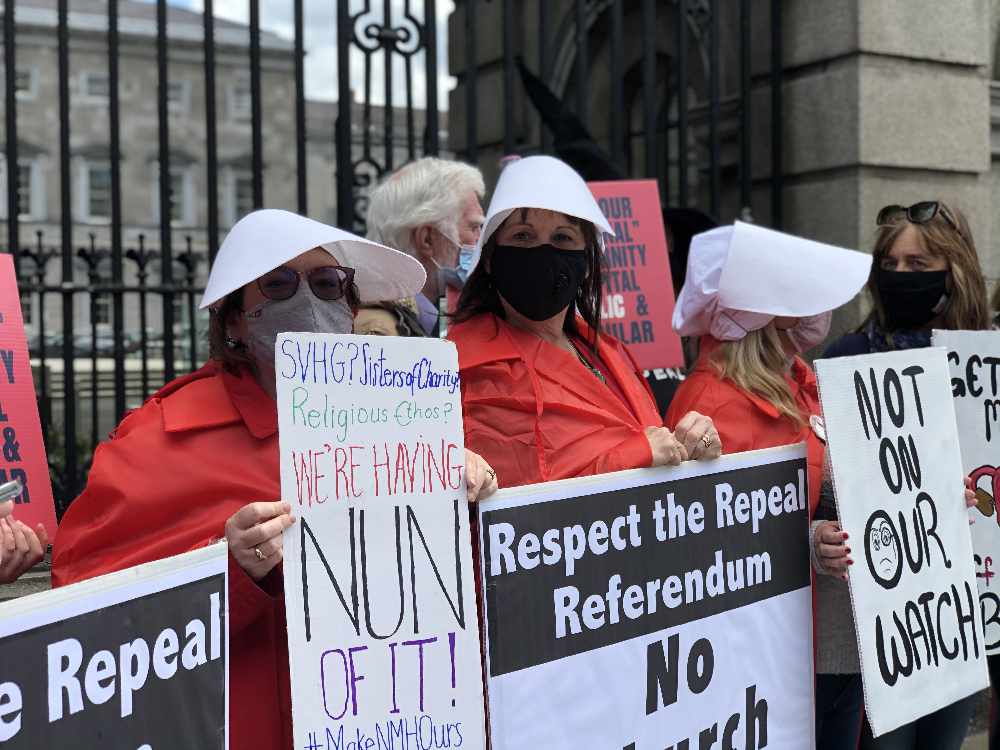
- The papers released by the Government on Wednesday don’t tell the full story
The papers released in defence of the project on Wednesday night represent only part of the documents within this deal. The papers are missing the documents which govern and control the company the nuns have set up and transferred their shareholding to.
These nuns, the Religious Sisters of Charity founded St Vincent’s Hospital in 1834. They were also one of the four orders involved in running Magdalene laundries.
Five days ago, the nuns transferred their shareholdings of St. Vincent’s into the new charity to “remove” religious influence from the ethos of the new hospital. We use the word “remove” because…..
- The Government have essentially pinky-promised that abortion, IVF and other reproductive procedures fall under the “clinically appropriate” banner
A main area of debate is whether the new hospital will be removed enough from its past to ensure reproductive services like abortion and IVF can be offered in the facility. The Minister for Health and the Taoiseach have consistently stated that all legal and clinically appropriate procedures will be available.
Both campaigners and politicians have repeatedly asked for the Minister for Health to simply spell it out, and have it explicitly clear what is clinically appropriate and to ensure safeguards for women’s health.
Stephen Donnelly also has repeatedly assured the public that future health ministers will have a ‘golden share’ in the hospital which allows them to intervene if services are refused. But if there is a need for a ‘golden share’, then surely it is safer to take full ownership and control of the hospital into State hands, and prevent the need to intervene one day?
The board of the new National Maternity Hospital will include three independent ‘public interest’ directors – selected and appointed by the health minister – with three nominated by St Vincent’s Hospital, and three nominated by the National Maternity Hospital. The role of chair will rotate between the three groups.
Campaigners are concerned by the framework of the hospital, noting that ‘public interest’ directors will be completely outnumbered. Meanwhile, Stephen Donnelly has called the land ownership issue a “red herring” and dismissed concerns regarding the hospital.
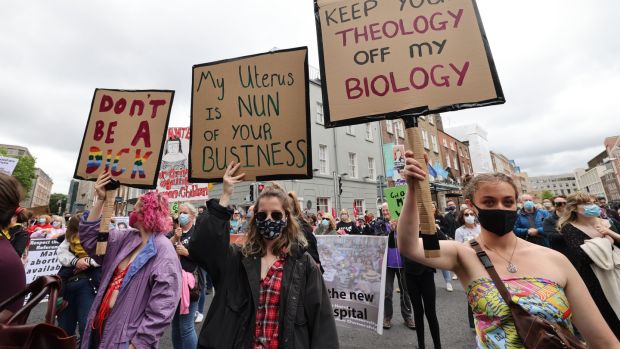
- St. Vincent’s Hospital currently does not perform tubal ligations or vasectomies
Critics of the deal between the Government and St. Vincent’s University Hospital have pointed to the fact that tubal ligations and vasectomies are still seen as taboo in the hospital group as evidence for the state to solely own and run the future National Maternity Hospital.
As reported by The Gist, consultant gynaecologists have written to people seeking tubal ligation and asked them not to look for the service in St Vincent’s as they are ‘not performed’ there.
It has also been noted that many public hospitals do not offer abortion services as legislation to ensure safe access zones outside clinics has yet to be introduced.
- The 10 euro rent could be increased to 850,000 euro per year if St. Vincent’s feel like it
Within the lease agreement, it is revealed that St. Vincent’s has the option to increase rent to nearly a million euro a year if they feel that the State-funded hospital is offering medical procedures that are outside the definition of “clinically appropriate”.
Both the Taoiseach Micheál Martin and Stephen Donnelly have cited the ten euro deal as “ownership… by any objective analysis”, without referencing that the landlords will only keep the rent at this price “if each of the following conditions are complied with…..there is no change to the Permitted Use without the consent of the Landlord”
- The Deputy Head of the HSE and former master of the National Maternity Hospital aren’t happy
Dr Peter Boylan, former master of the National Maternity Hospital, has cited a number of concerns including the “conditions set by the Holy See for the transfer of ownership of SVHG to St Vincent’s Holdings”.
“As you will be aware, the Religious Sisters of Charity (RSC) were obliged under canon law to seek the permission of the Holy See for the transfer of their shareholding to St Vincent’s Holdings.”
“As a Catholic religious order, they are governed by the Congregation for the Institutes of Consecrated Life and Societies of Apostolic Life in Rome.”
In his letter to the Government, he also said: “As you will further be aware, two members of the board of the HSE dissented from the decision by the board to agree the RSC shareholding transfer to St Vincent’s Holdings. The vice-chair of the HSE, Professor Deirdre Madden is recorded as having ‘concerns regarding legal ownership of the site and building, and the governance and control of
the proposed new maternity hospital”.
Dr Chris Fitzpatrick, former master of the Coombe, also wrote a letter to the Irish Times on the issue: “We were told that the powers that be that the National Children’s Hospital would be built on the Mater hospital site. Next we were then told that it would be built on the St James’ site. Since then we have been told many different stories about when it will be opened and how much it will cost. The truth is: no one knows.”
“Now the powers that be are telling us that the new National Maternity Hospital on the St Vincent’s site will be free of all religious interference. Is it any wonder this is very hard to believe?”
- The Government could buy the site for market value, under certain circumstances
Also reported by The Gist, St Vincent’s Holdings agrees, under certain circumstances, to just sell the hospital site at market value to the HSE “free from any encumbrances, mortgages and/or charges.”
Many consider this as exactly what should have happened at the start. And it could be the simple answer to all the confusing debates happening right now.
Opposition TDs have also questioned why the Government cannot CPO the site as they have done so in the past, especially as the hospital will cost over a billion euro. Stephen Donnelly has asserted they don’t know whether this option would be successful.
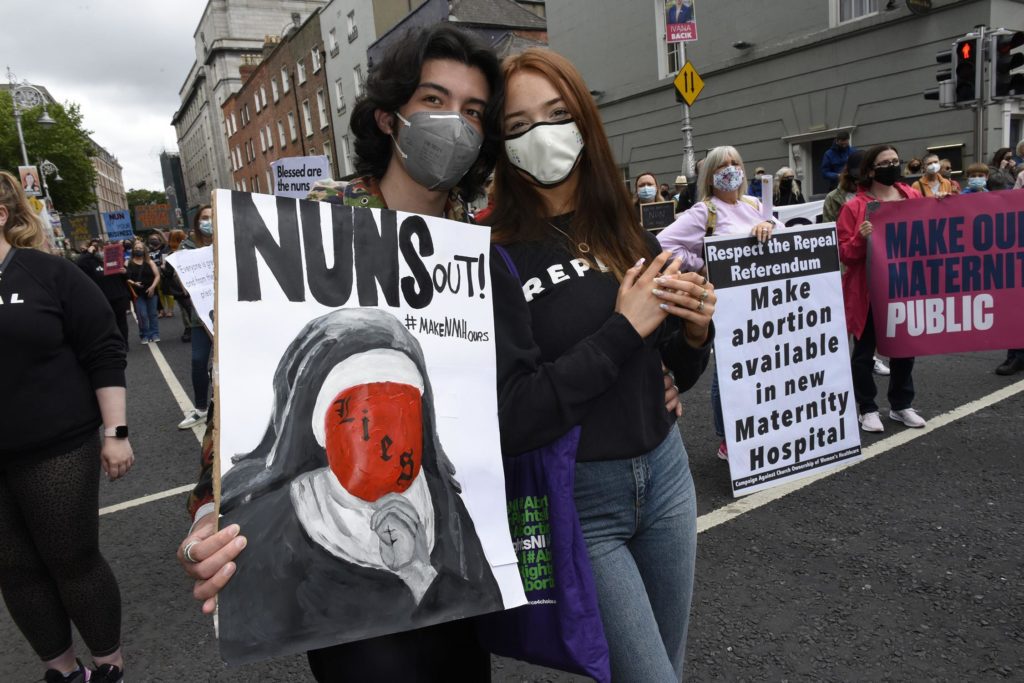
- The objective of the new National Maternity Hospital is to deliver “21st-century healthcare”
Ultimately, this new hospital sets a precedent for Irish healthcare. It is the first maternity hospital to be established post-Repeal and post-Mother and Baby Homes Report.
Current master of the National Maternity Hospital, Dr Rhona Mahony, has said about the importance of the facility: “We are talking about building a 21st-century hospital for women that will deliver the very best of women’s health care, not just in this country, but a healthcare setting that will be admired, I think all across Europe, if not the world.”
But if the hospital is purely for innovation and improvement, why must a splinter-group of a religious order be involved in its governance?
- The Vatican has never apologised for the death and trauma associated with the Magdalene laundries
Although the Irish Catholic Church and individual religious orders have apologised for the atrocities that have occurred in the Magdalene Laundries and Mother and Baby Homes, the Vatican has never offered its condolences to victims. About 56,000 women and 57,000 children were placed or born at the homes, most run by nuns. Around 9,000 children died in these institutions.
The Religious Sisters of Charity, which ran laundries in Donnybrook, Dublin, and Peacock Lane, Cork, previously offered an apology but also said it acted in good faith.
“We apologise un-reservedly to any woman who experienced hurt while in our care. In good faith we provided refuge for women at our Magdalene homes in Donnybrook and Peacock Lane. Some of the women spent a short time with us; some left, returned and left again and some still live with us,” said a 2013 statement from the order involved in the National Maternity Hospital scandal.
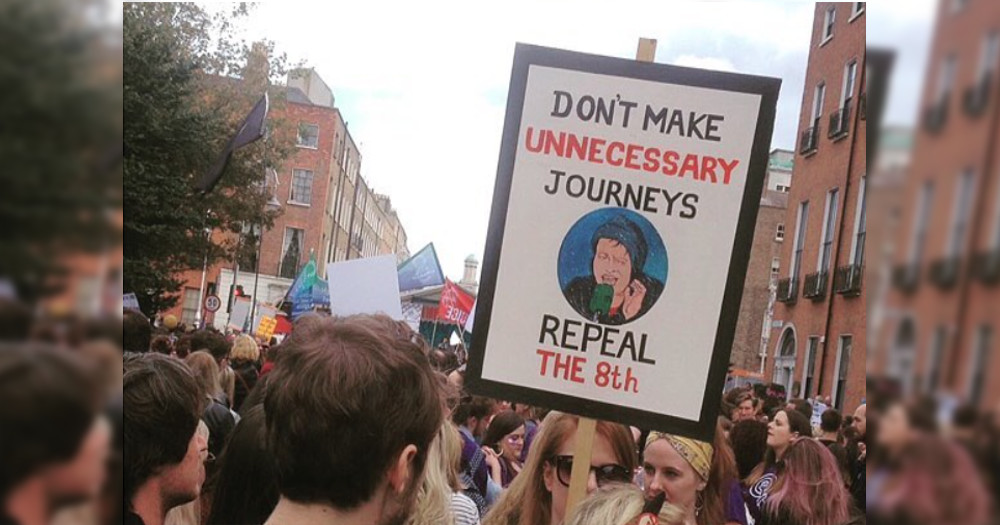
The Our Maternity Hospital campaign is holding a protest at the Dáil on Saturday, May 14 at 14:00 following the news, insisting that the new National Maternity Hospital must be on publicly-owned land, without potential religious influence.
Elsewhere on District: National Maternity Hospital to be gifted to “Vatican-approved” company
